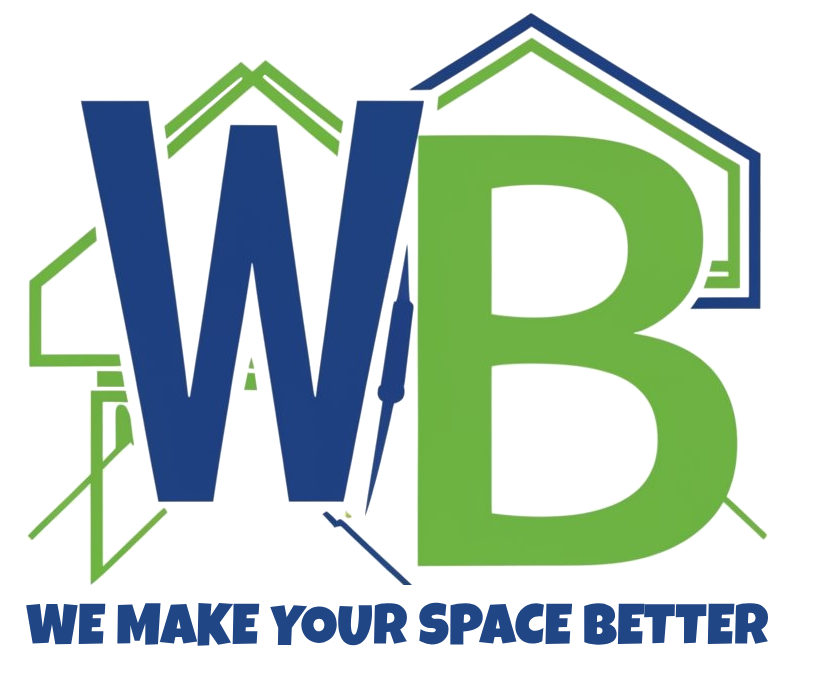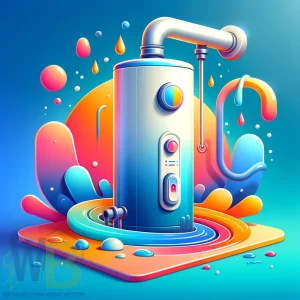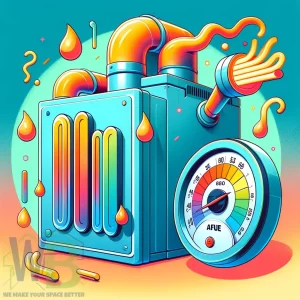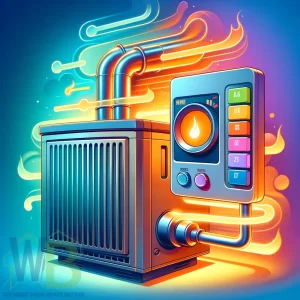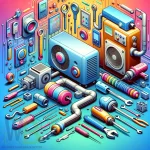Is your home’s HVAC system not working as it should? When your HVAC system has problems, it can make your home uncomfortable and cause higher energy bills.
But before you call a professional, there are simple steps you can take to troubleshoot common issues.

Air Filter
The air filter in your HVAC system might seem small, but it plays a big role in how well it works. Over time, these filters can get dirty or clogged with dust and debris, causing several problems.
A dirty filter limits the airflow in your HVAC system, making it work harder to cool your home. This extra strain can lead to reduced cooling, more energy usage, and damage over time. To avoid these issues, clean or replace your air filter regularly. A clean filter allows for better airflow, improves the system’s efficiency, and keeps the air in your home clean.
Thermostat
Your thermostat acts as the control center for your HVAC system. It can cause temperature changes, discomfort, and higher energy bills when it doesn’t work correctly. Thankfully, there are simple troubleshooting steps for thermostat-related problems.
One common issue is dead or weak batteries. Check and replace the batteries if your thermostat’s screen is off or not responding. This straightforward step can bring back its functionality.
Another problem you might encounter is inaccurate temperature readings. If your thermostat shows the wrong temperature, it can make your HVAC system run when it shouldn’t or not run when needed. To solve this issue, try cleaning the thermostat’s temperature sensor. Dust and dirt can build up over time, affecting its accuracy. Also, make sure the thermostat isn’t exposed to direct sunlight or drafts, as these can affect its performance.
Airflow
Proper airflow is crucial for your HVAC system to distribute conditioned air effectively in your home. Poor airflow from the vents can lead to uneven heating or cooling, discomfort, and strain on the system. Several factors can cause this issue, and troubleshooting them is simple.
One common reason for restricted airflow is a dirty or clogged air filter, as we’ve discussed earlier. Regularly cleaning or replacing your air filter is essential to maintain proper airflow.
Another issue that can affect airflow is a blocked outside unit fan. Debris, leaves, or overgrown plants around the outdoor unit can block the fan’s operation. Regularly check the area around the unit and remove any blockages to ensure good airflow.
The blower fan can accumulate dust and dirt inside your HVAC system over time, reducing its efficiency. Cleaning the blower fan and its parts can help maintain smooth airflow. By addressing these common causes of poor airflow, you can ensure that your HVAC system operates at its best and keeps your home comfortable year-round.
Circuit Breaker
When your HVAC system suddenly stops working, one of the first places to check is your home’s electrical system. Tripped circuit breakers or blown fuses are often the cause and can be easily fixed.
Start by finding your home’s electrical panel or fuse box in a utility room, basement, garage, or closet. Open the panel and inspect your HVAC system’s circuit breakers or fuses.
If you find a tripped circuit breaker, it will be in the “off” position or somewhere between “on” and “off.” To reset it, switch it to the “off” position and back to the “on” position. This action should restore power to your HVAC system.
In the case of blown fuses, carefully replace the blown fuse with a new one with the same amperage rating. Using the correct amperage rating is crucial to prevent electrical problems.
After addressing any electrical issues by resetting circuit breakers or replacing fuses, check your HVAC system to ensure it’s functioning correctly. If the problem persists, it may be time to seek professional help. Simple electrical troubleshooting can save you from unnecessary HVAC repair costs and downtime.
Maintenance
Regular maintenance is important to stop common HVAC problems and make your system last longer. If you don’t take care of it, you might have issues like it not working or breaking down, which can be expensive to fix. It’s a good idea to set up regular maintenance with a professional HVAC technician to avoid these issues.
When they come for maintenance, the technician will check many parts of your HVAC system. They’ll look for leaks in the refrigerant, clean and put oil on moving parts, and make sure all the electrical stuff is safe. They’ll also see how well your system works and make changes to improve it.
Regular maintenance helps find and fix problems before they become big, expensive issues. It’s a good habit to check your HVAC system at least once a year, usually before it gets hot or cold. When you do this, you’ll know that your system is well taken care of and will work great.
Conclusion
In this guide, we’ve looked at common problems with your home’s HVAC system and given you practical tips to fix them. Your HVAC system is super important for keeping your home comfy all year, and fixing these problems early can save you money and make it work better.
We’ve discussed things like keeping the air filter clean and fixing issues with your thermostat or airflow. These are the basic things to keep your HVAC system working well. But remember, if you ever have a big problem that you can’t solve, it’s okay to call a professional for help.
By following these tips, you’ll know more about taking care of your home, and you can make sure your HVAC system keeps your home cozy for a long time. And if you ever run into a problem that’s too tricky, you can always get help from a trusted pro.
